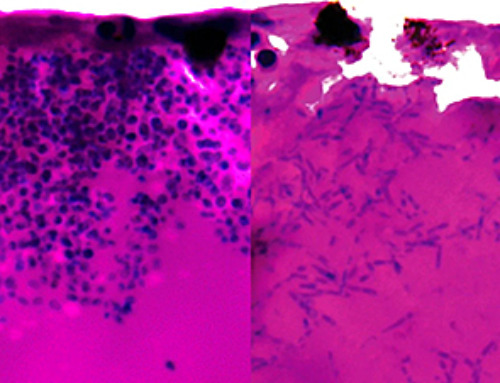Understanding hippocampal activity could improve sleep and cognition therapies.
Researchers from the University of California, Irvine's biomedical engineering department have discovered a new origin for two essential brain waves—slow waves and sleep spindles—that are critical for deep sleep. While it was traditionally thought that these brain waves originated solely from a circuit connecting the thalamus and cortex, the team's findings, published in Scientific Reports, suggest that the axons in memory centers of the hippocampus play a role.
For decades, slow waves and sleep spindles have been identified as essential elements of deep sleep, measured through electroencephalography recordings on the scalp. However, the UC Irvine-led team revealed a novel source of these brain waves within the hippocampus and were able to measure them in single axons.
The study demonstrates that slow waves and sleep spindles can originate from axons within the hippocampus' cornu ammonis 3 region. These oscillations in voltage occur independently of neuronal spiking activity, challenging existing theories about the generation of these brain waves.
"Our research sheds light on a previously unrecognized aspect of deep sleep brain activity," said lead author Mengke Wang, former UC Irvine undergraduate student in biomedical engineering who is now a graduate student at Johns Hopkins University (Wang conducted the study while at UC Irvine). "We've discovered that the hippocampus, typically associated with memory formation, plays a crucial role in generating slow waves and sleep spindles, offering new insights into how these brain waves support memory processing during sleep."
The team utilized innovative techniques – including in vitro reconstructions of hippocampal subregions and microfluidic tunnels for single axon communication – to observe spontaneous spindle waves in isolated hippocampal neurons. These findings suggest that spindle oscillations originate from active ion channels within axons, rather than through volume conduction as previously thought.
Implications and Future Research
"The discovery of spindle oscillations in single hippocampal axons opens new avenues for understanding the mechanisms underlying memory consolidation during sleep," said co-author Gregory Brewer, adjunct professor of biomedical engineering. "These findings have significant implications for sleep research, potentially paving the way for new approaches to treating sleep-related disorders."
Brewer's other research affiliations include the Institute for Memory Impairment and Neurological Disorders and the Center for Neurobiology of Learning and Memory.
By uncovering the hippocampus's role in generating slow waves and sleep spindles, this research expands our understanding of the brain's activity during deep sleep and its impact on memory processing. The findings offer a promising foundation for future studies exploring the therapeutic potential of targeting hippocampal activity to improve sleep quality and cognitive function.
Reference: "Spindle oscillations in communicating axons within a reconstituted hippocampal formation are strongest in CA3 without thalamus" by Mengke Wang, Samuel B. Lassers, Yash S. Vakilna, Bryce A. Mander, William C. Tang and Gregory J. Brewer, 10 April 2024, Scientific Reports.
DOI: 10.1038/s41598-024-58002-0
Joining Brewer and Wang in this study, which received financial support from the UCI Foundation, were William Tang, professor emeritus of biomedical engineering; Bryce Mander, associate professor of psychiatry & human behavior; and Samuel Lassers, graduate student researcher in biomedical engineering.
News
Scientists Unlock a New Way to Hear the Brain’s Hidden Language
Scientists can finally hear the brain’s quietest messages—unlocking the hidden code behind how neurons think, decide, and remember. Scientists have created a new protein that can capture the incoming chemical signals received by brain [...]
Does being infected or vaccinated first influence COVID-19 immunity?
A new study analyzing the immune response to COVID-19 in a Catalan cohort of health workers sheds light on an important question: does it matter whether a person was first infected or first vaccinated? [...]
We May Never Know if AI Is Conscious, Says Cambridge Philosopher
As claims about conscious AI grow louder, a Cambridge philosopher argues that we lack the evidence to know whether machines can truly be conscious, let alone morally significant. A philosopher at the University of [...]
AI Helped Scientists Stop a Virus With One Tiny Change
Using AI, researchers identified one tiny molecular interaction that viruses need to infect cells. Disrupting it stopped the virus before infection could begin. Washington State University scientists have uncovered a method to interfere with a key [...]
Deadly Hospital Fungus May Finally Have a Weakness
A deadly, drug-resistant hospital fungus may finally have a weakness—and scientists think they’ve found it. Researchers have identified a genetic process that could open the door to new treatments for a dangerous fungal infection [...]
Fever-Proof Bird Flu Variant Could Fuel the Next Pandemic
Bird flu viruses present a significant risk to humans because they can continue replicating at temperatures higher than a typical fever. Fever is one of the body’s main tools for slowing or stopping viral [...]
What could the future of nanoscience look like?
Society has a lot to thank for nanoscience. From improved health monitoring to reducing the size of electronics, scientists’ ability to delve deeper and better understand chemistry at the nanoscale has opened up numerous [...]
Scientists Melt Cancer’s Hidden “Power Hubs” and Stop Tumor Growth
Researchers discovered that in a rare kidney cancer, RNA builds droplet-like hubs that act as growth control centers inside tumor cells. By engineering a molecular switch to dissolve these hubs, they were able to halt cancer [...]
Platelet-inspired nanoparticles could improve treatment of inflammatory diseases
Scientists have developed platelet-inspired nanoparticles that deliver anti-inflammatory drugs directly to brain-computer interface implants, doubling their effectiveness. Scientists have found a way to improve the performance of brain-computer interface (BCI) electrodes by delivering anti-inflammatory drugs directly [...]
After 150 years, a new chapter in cancer therapy is finally beginning
For decades, researchers have been looking for ways to destroy cancer cells in a targeted manner without further weakening the body. But for many patients whose immune system is severely impaired by chemotherapy or radiation, [...]
Older chemical libraries show promise for fighting resistant strains of COVID-19 virus
SARS‑CoV‑2, the virus that causes COVID-19, continues to mutate, with some newer strains becoming less responsive to current antiviral treatments like Paxlovid. Now, University of California San Diego scientists and an international team of [...]
Lower doses of immunotherapy for skin cancer give better results, study suggests
According to a new study, lower doses of approved immunotherapy for malignant melanoma can give better results against tumors, while reducing side effects. This is reported by researchers at Karolinska Institutet in the Journal of the National [...]
Researchers highlight five pathways through which microplastics can harm the brain
Microplastics could be fueling neurodegenerative diseases like Alzheimer's and Parkinson's, with a new study highlighting five ways microplastics can trigger inflammation and damage in the brain. More than 57 million people live with dementia, [...]
Tiny Metal Nanodots Obliterate Cancer Cells While Largely Sparing Healthy Tissue
Scientists have developed tiny metal-oxide particles that push cancer cells past their stress limits while sparing healthy tissue. An international team led by RMIT University has developed tiny particles called nanodots, crafted from a metallic compound, [...]
Gold Nanoclusters Could Supercharge Quantum Computers
Researchers found that gold “super atoms” can behave like the atoms in top-tier quantum systems—only far easier to scale. These tiny clusters can be customized at the molecular level, offering a powerful, tunable foundation [...]
A single shot of HPV vaccine may be enough to fight cervical cancer, study finds
WASHINGTON -- A single HPV vaccination appears just as effective as two doses at preventing the viral infection that causes cervical cancer, researchers reported Wednesday. HPV, or human papillomavirus, is very common and spread [...]





















